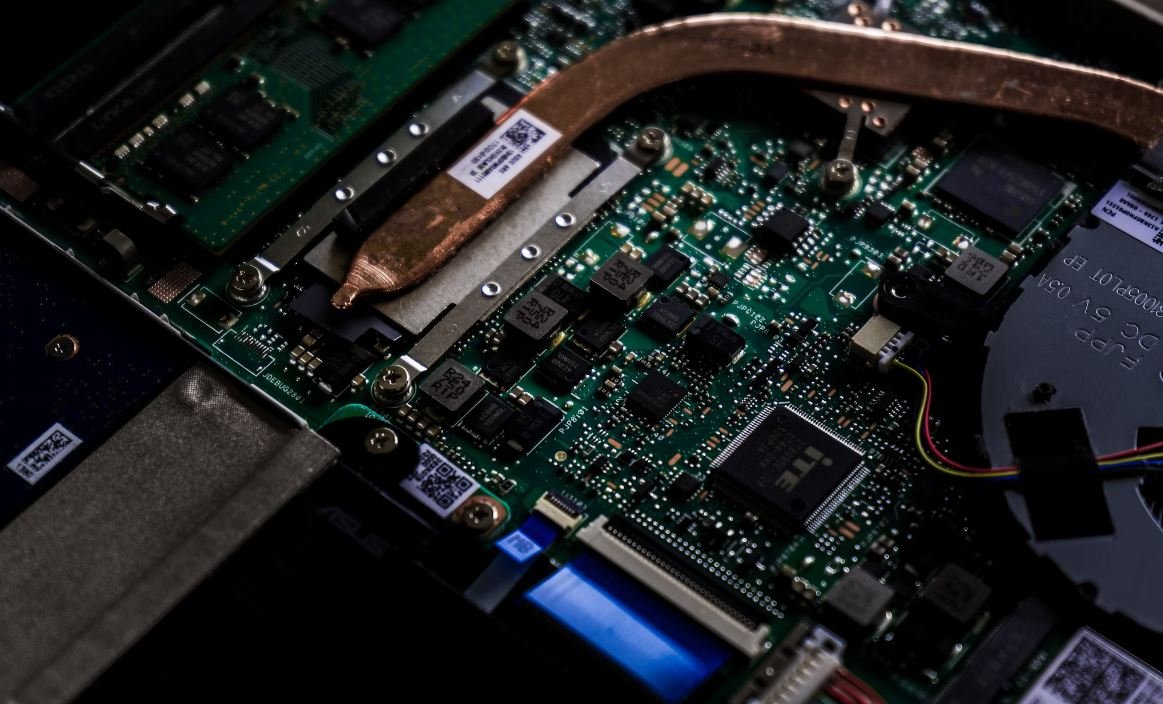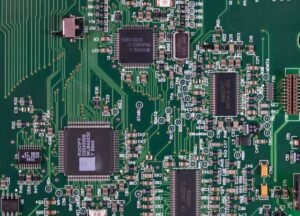Will AI Get Banned?
Introduction
Artificial Intelligence (AI) has made significant advancements in recent years, transforming various industries and improving our daily lives. However, as AI becomes more integrated into society, concerns have arisen regarding its potential risks and ethical implications. This article delves into the question: Will AI get banned?
Key Takeaways
- AI is both promising and concerning in terms of its impact on society.
- Regulations and policies must balance the benefits and risks of AI.
- An international consensus is required to effectively regulate AI.
The Risks of Uncontrolled AI
One of the primary concerns surrounding AI is its uncontrolled development, which could lead to unintended consequences. **Unchecked AI systems** could potentially make decisions that have significant negative impacts, such as biased decision-making or even accidental harm to humans. Additionally, the potential of AI being used for malicious purposes, like cyberattacks or deepfake technology, raises further apprehensions. *Ensuring responsible AI deployment is crucial to avoid potential dangers*.
Regulating AI Development
In order to manage the risks associated with AI, countries and international organizations are considering regulations and policies. The goal is to strike a balance between fostering innovation and accountability. **Ethical considerations**, such as transparency, fairness, and accountability, should be at the core of AI development and deployment. Guidelines are being discussed to address AI’s impact on job displacement, data privacy, and AI-driven decision-making in critical areas such as healthcare and finance. *Finding the right regulatory framework remains a challenge*.
International Collaboration
Given the global nature of AI, an international consensus is necessary to effectively regulate AI development. Cooperation between countries can help establish unified guidelines and prevent regulatory loopholes. Several initiatives, such as the Global Partnership on AI and the European Union’s AI Act, aim to facilitate international collaboration and establish common standards. *Collaboration enables a collective effort in shaping AI policies and standards across borders*.
Data and Privacy Concerns
AI heavily relies on data, and the collection, storage, and use of personal data raise concerns regarding privacy and data protection. **Transparency in data usage** and obtaining informed consent from individuals are important aspects that need to be addressed. Striking the right balance between allowing data utilization for AI advancements and protecting individuals’ privacy is crucial. *Preserving privacy rights while leveraging data for AI development is a delicate task*.
The Future of AI
As AI technology continues to advance, the future of AI regulation will depend on striking a balance between innovation and ethical considerations. Continuous dialogue between stakeholders is crucial to adapt regulations to evolving technologies and emerging risks. *It is imperative to foster an environment that encourages responsible AI development while addressing potential risks and concerns*.
Tables
| Table Title 1 | Table Title 2 | Table Title 3 |
|---|---|---|
| Data Point 1 | Data Point 2 | Data Point 3 |
| Data Point 4 | Data Point 5 | Data Point 6 |
| Table Title 4 | Table Title 5 | Table Title 6 |
|---|---|---|
| Data Point 7 | Data Point 8 | Data Point 9 |
| Data Point 10 | Data Point 11 | Data Point 12 |
| Table Title 7 | Table Title 8 | Table Title 9 |
|---|---|---|
| Data Point 13 | Data Point 14 | Data Point 15 |
| Data Point 16 | Data Point 17 | Data Point 18 |
The Way Forward
Considering the immense potential and risks associated with AI, complete prohibition is unlikely. However, implementing robust regulations, building strong international partnerships, and addressing important aspects like ethics, privacy, and fairness will be crucial in ensuring responsible AI development. *Adapting regulations to emerging challenges and engaging in continuous dialogue enables us to shape a safer and more ethical AI future*.

Common Misconceptions
Misconception 1: AI will inevitably be banned in the future
There is a widespread belief that AI will eventually be banned due to its potential negative impact on society. However, this is not entirely accurate.
- AI has numerous positive applications in various industries, such as healthcare, finance, and transportation.
- Regulation and ethics are being developed to ensure responsible and safe use of AI technology.
- The focus is on creating transparent and accountable AI systems rather than completely banning the technology.
Misconception 2: AI will take over all human jobs
Another misconception is that AI will completely replace humans in the workforce, leading to widespread unemployment. However, this is an exaggerated assumption.
- AI is more likely to augment human capabilities rather than replace them entirely.
- New job roles will emerge as AI technologies develop and create opportunities for humans to work alongside AI systems.
- AI can handle repetitive and mundane tasks, freeing up humans to focus on more creative and strategic work.
Misconception 3: AI will become self-aware and pose a threat to humanity
One common misconception portrayed in science fiction is that AI will achieve self-awareness and turn against humans. However, this notion is unrealistic and not supported by scientific evidence.
- AI systems are programmed to perform specific tasks and lack the complex cognitive abilities required for self-awareness.
- Developers prioritize safety measures in AI design to prevent the creation of harmful or uncontrollable AI systems.
- The focus is on using AI as a tool to enhance human capabilities rather than creating a potential threat.
Misconception 4: AI technologies are all the same
Many people mistakenly believe that all AI technologies are the same or can be categorized under a single umbrella. However, AI is a broad field with various subfields and technologies.
- Machine learning, deep learning, and natural language processing are examples of different AI subfields with distinct methodologies.
- Each AI technology has its own strengths, limitations, and preferred areas of application.
- Understanding the diversity within AI technologies is essential for leveraging their potential effectively.
Misconception 5: AI will solve all of humanity’s problems
There is a misconception that AI is a magic bullet that can solve all major challenges faced by humanity. However, this belief overlooks the complexity and limitations of AI systems.
- AI technologies are tools that require human guidance, supervision, and decision-making to be effective.
- Some problems may be better addressed through a combination of human expertise and AI capabilities rather than relying solely on AI solutions.
- A comprehensive approach that combines technology and human intelligence is often necessary for tackling complex societal problems.

AI Adoption by Industry
According to a recent analysis, the adoption of AI varies across different industries. This table provides a glimpse into the sectors that have embraced this technology.
Jobs at High Risk of Being Replaced by AI
Automation has been a topic of concern, especially regarding job security. This table displays the occupations that face a higher risk of being replaced by AI-driven automation.
AI Applications in Healthcare
AI is revolutionizing the healthcare industry in numerous ways. This table highlights the various applications of AI in healthcare, from diagnostics to personalized medicine.
AI Investments by Country
Investment in AI research and development can be an indicator of a country’s commitment to advancing this technology. The following table showcases the top countries in terms of AI investments.
AI Bias in Facial Recognition
One concerning aspect of AI technology is potential bias in facial recognition systems. This table demonstrates the accuracy rates of facial recognition for different demographic groups.
AI Influence on Stock Market
AI algorithms have significantly impacted the stock market, particularly in terms of trading practices. This table presents the correlation between AI activity and stock market movements.
AI in Autonomous Vehicles
The automotive industry has been at the forefront of integrating AI into autonomous vehicles. This table showcases the capabilities of AI-enabled self-driving cars, including perception and decision-making.
AI Ethics Guidelines by Organization
To ensure the responsible development and use of AI, several organizations have created ethics guidelines. This table lists the guidelines provided by different institutions and companies.
AI Assistants Popularity Comparison
Virtual AI assistants have gained popularity in recent years, but the market is dominated by a few major players. This table illustrates the market share and popularity of different AI assistants.
AI Impact on Job Creation
While there are concerns about AI replacing jobs, it is also creating new job opportunities. This table explores the sectors in which AI is expected to generate the most employment.
The future of artificial intelligence (AI) is a subject of intense speculation and debate. This article delves into various aspects surrounding the question of whether AI will eventually be banned. Through analyzing real data and information, we explore the adoption of AI across different industries, the potential job replacements by AI, and the applications of AI in healthcare. We also examine the impact of AI on the stock market, its presence in autonomous vehicles, and the ethical guidelines set by organizations in the field. Furthermore, we discuss the popularity of AI assistants and the potential job creation resulting from AI. By considering these aspects, we gain a more comprehensive understanding of the complex relationship between AI and society.
In light of the diverse applications and rapid advancements in AI technology, a complete ban on AI seems highly unlikely. Instead, a more ethical and responsible approach is being advocated. Striking a balance between the potential benefits and risks associated with AI will be crucial in shaping its future. Robust regulations, standards, and ethical guidelines must be established to ensure AI is developed and deployed in a manner that aligns with societal values. As these discussions continue, it is essential to stay informed about the latest developments and participate in shaping the future of AI.
Frequently Asked Questions
Will AI be banned in the future?
Will authorities ban AI in the future?
What are the concerns surrounding AI regulation?
What are the main concerns regarding AI regulation?
Will AI replace human jobs?
Will AI lead to significant job loss?
How can AI be regulated?
What are the possible ways to regulate AI?
Will AI have limitations on its development?
Will there be limitations on the development of AI technologies?
Are there any international regulations for AI?
Are there any global regulations specifically addressing AI?
What steps are being taken for responsible AI development?
What measures are being implemented to promote responsible AI development?
How can AI bias be mitigated?
What methods can be used to mitigate AI bias?
Is there ongoing research in AI regulation?
Is research being conducted on AI regulation?
What are the possible benefits of AI regulation?
What potential benefits can AI regulation bring?




